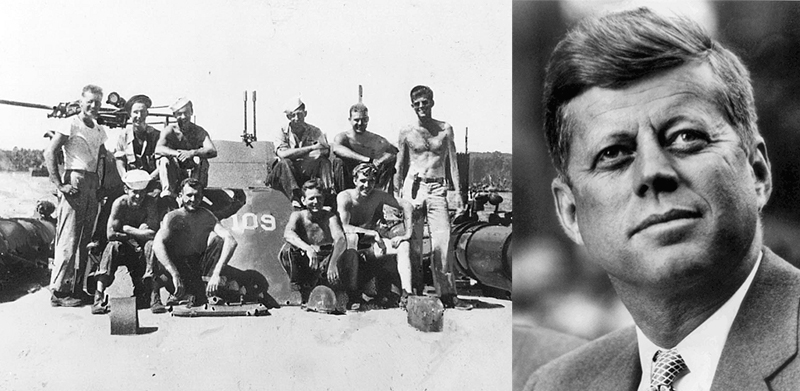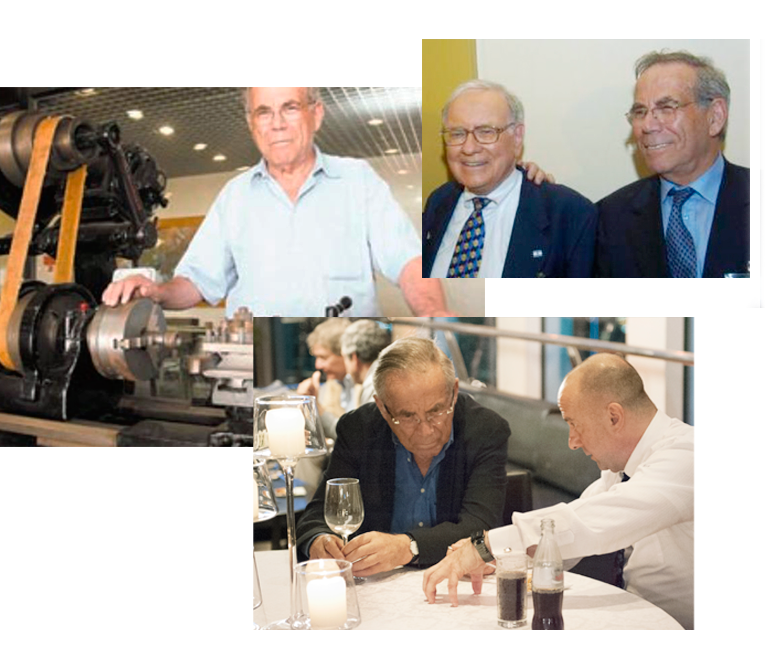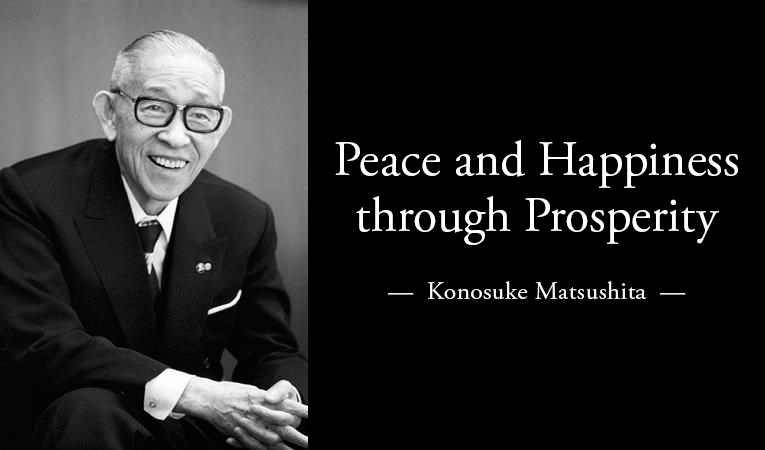
Birthright and Legacy
Message from Mr. Russell Ellwanger—TowerJazz CEO & TPSCo Chairman
Everyone born has the opportunity to live—to breathe, to interact, to think, learn and to DO, and everyone has something inside that drives them, that they intrinsically feel drawn to do with the life they have been given. This Divine birthright is equal for all.
But from our first breath, each of us is introduced to unique circumstances. We don’t choose our family, our gender, our race or the country, society or religion that we are born into; yet these factors have a profound influence on expectations and upon our beliefs, opportunities, and our rights and privileges.
Nations and societies that provide equal access to education and employment to all citizens without regard to gender, race, religion or wealth – provide a national birthright accretive to our Divine birthright. Where such access is diminished, the Divine birthright may not have the opportunity to take full seed.
Familial birthright is founded upon parents’ legacies.
An optimal familial birthright is where children:
- Witness a relationship between husband and wife that encompasses all aspects of love and respect and in turn, the love and respect is shared with the child. In this way they gain their own fluency and understanding to communicate love and to be respectful in the home and to others.
- Feel the impact of husband and wife inspiring each other to pursue higher vistas of performance and self-development.
- Are surrounded by actions of sincere service impacting individuals and communities outside of the immediate family, instilling a sense of compassion and responsibility towards their fellowman.
- Are encouraged and provided opportunities to experience and take part in frequent and in-depth interactions with technical, political and business leaders; giving him or her an advantage as he or she pursues education, internships and careers.
- Take part in regular, value-based discussions on religion, philosophy and morality causing them to think through concepts bigger than themselves and to form systems of personal beliefs and values.
- Experience the benefits of financial freedom, a large enabler for meaningful service outside the home, with a conviction that the dedication, efforts and principles that enable financial independence are worth it.
Parents can provide a legacy, but character is a child’s responsibility.
President John F. Kennedy was born into great family wealth, ranking in the top 10 in the US in the mid-1900s. He was deemed physically unfit for military service and was deferred. He, however, used his father’s money and influence to “buy” him into the military and then volunteered for a heavy combat position, a PT boat commander. In this position he demonstrated extreme moral and physical courage and unwavering loyalty to those serving under him.

He went on to be a Pulitzer Prize winning author (Profiles in Courage), a congressman, senator and President of the United States. In having seen the futility of war first hand, he was a sure agent for peace and averted a nuclear war against the promptings of his joint military chiefs and Cabinet. When a stand was needed, he was counted and enforced civil rights legislation. He opened the US to service creating the Peace Corps, which at the time was a revolutionary concept for the country.
He used his birthright to propel himself to a lifelong activity of public service rather than the pure self-indulgence of a “rich kid,” and he cemented his legacy with his life
Where there is no legacy, there is no penalty.


In Israel, I have been inspired and honored to learn of and from Mr. Stef Wertheimer, a self-made entrepreneur and industrialist. He created business that manufactured unique value and then spent his time using this success to bring to Israel a vocational education system as well as placing industrial parks in diverse areas thereby bringing people of varied, even conflicting cultures, peaceably together by working side by side to produce manufactured goods with a succinct market value.
In the midst of strong financial success and much fame, his humble approach to life, never changed. Now in his tenth decade, he continues to focus on facilitating entrepreneurial business environments and giving opportunities where individuals learn to create value. Never have I observed him say or do anything that is inward focused.
In Japan, TowerJazz is honored that our Japanese factories have a legacy from Konosuke Matsushita, the founder of Panasonic. Mr. Matsushita was born into a wealthy family, but through rice market speculation his father lost everything and the family became destitute. His formal education ended at nine years of age when he was sent to apprentice in Osaka. He spent five years at a bicycle shop learning metal work and then joined an electronics shop. From a humble beginning he built one of the largest electronics enterprises in the world and became a strong social architect, rebuilding Japan after WWII. He lived by his philosophy and Panasonic’s mission and left a great legacy including his post war institute entitled “Peace and Happiness through Prosperity.”
Mr. Matsushita’s Philosophy: “Human beings need both material and spiritual prosperity. Religion guides people out of suffering toward happiness and peace of mind. And business, too, can contribute by providing physical necessities required for happiness. This should be its primary purpose.”
Panasonic’s mission: “Our mission as a manufacturer is to create material abundance by providing goods as plentiful and inexpensive as water. This is how we can banish poverty, bring happiness to people’s lives and make this world a better place.”
Legacy becomes the sum of what a person does with their birthright.
John F. Kennedy, Stef Wertheimer, Konosuke Matsushita, and many more, created larger than life legacies by providing opportunities for others to learn and participate in creating value. They used diverse means towards this end, but in all cases faced the numerous challenges and obstacles of life with an optimistic view regarding the nature of their fellow man. This appears to be a requirement of a gracious and grand legacy.
“Where much
is given, much
is expected.”
How wonderfully motivational and faith promoting it is to study lives who were indeed “given much”, either through inheritance or the accomplishments of their own hands, and who gave back so much more.
Orson Scott Card wrote, “Changing the world is good for those who want their names in history books, but being happy is reserved for those who write their names in the lives of others and hold the hearts of others as the treasure most dear.” Recognizing needs and giving opportunities that enable others to grow and reach their potential is a touch of Godliness. Being in a position to do so is a blessing. Doing so is an obligation—a part of the human contract with Divinity.
Leadership and Legacy
A sign outside of a Catholic church struck me as a powerful truth, “Your vocation—your chosen calling to serve God.” Those who, by inheritance, chance or merit, or some combination of the three, are in roles of business leadership are in a strong position to balance the inequality of familial and societal birthrights. The French concept of Noblesse Oblige expresses the responsibility of those of privilege towards those of lesser position and opportunity. This concept should be applied liberally as a driving force behind business leaders.
Men and women who return home at the end of the work day, fulfilled and confident by having created value are better husbands and wives, fathers and mothers, brothers and sisters, friends and citizens.
Of the many opportunities presented to a business leader, the greatest is perhaps the ability to set a value-based corporate culture in which employees grow ethically, socially, financially, and in skills, knowledge and confidence. Yes, shareholder value is critical, but it is maybe only long term sustainable through creating a culture with implicit focus on individual development and growth with a rewards system that recognizes the same. In such a value-based company the long hours that impassioned employees dedicate to create value serves in parallel as a laboratory for all aspects of personal growth through the pursuit of excellence.
In the General Electric annual report from the year 2000, Mr. Jack Welch stated, “We see, day after day, people’s lives—and not just their business lives—utterly transformed by the self-confidence born of meeting big challenges.” Strong, value-based businesses can do more for the communities and hence the nations in which they are located than most any other organization. Men and women who return home at the end of the work day, fulfilled and confident by having created value are better husbands and wives, fathers and mothers, brothers and sisters, friends and citizens.
Leaving a Legacy
In Les Miserables, Victor Hugo wrote, “Success is a hideous thing, its similarity to merit deceives men.” The building of a legacy is so much more than a temporal statement or worldly affirmation of success. Temporal success can be no more than a chance of birth or “being in the right place at the right time,” whereas legacy is based upon a lifetime of “brick by brick” construction of personal character.
Legacy can be measured by a three-part question:
Is the birthright of one’s child accretive to the birthright of the parent?
How has he or she added value to society beyond his or her immediate family?
Has the individual been active in creating opportunity for others?
In short, one’s legacy is measured by the answer to this question: “are there lives into which he or she has written their name?” It is impossible to write one’s name in the life of another without the reciprocal having occurred. And hence, as per Scott Card’s quote, the culmination of a proper personal legacy is happiness!
In closing, I am most optimistic. To echo the words of William Faulkner from his Nobel Prize acceptance speech, “I believe that man will not merely endure: he will prevail. He is immortal, not because he alone among creatures has an inexhaustible voice, but because he has a soul, a spirit capable of compassion and sacrifice and endurance.” I add to his statement… “and is capable of change.” Mankind has control over legacy. It matters less “who” a person was a year ago, it matters who they are today and who they will be tomorrow.
The same holds for a business enterprise. I work and pray for the best for TowerJazz, as our employees grow and make monuments of their lives in creating personal legacies, and as we, as a company grow our legacy and in partnership with our customers (a) provide further value to enhance our customers’ businesses and (b) continue to return value to our shareholders.
We focus on the fundamental truths that all people share — peace, security and happiness, and do so through gainful employment with equal opportunity, a culture where each employee is trustworthy and all are treated with respect, and lastly with valuable training and recognition for upward mobility. We are optimistic that we will not just “endure” but based on correct principles we, with our customer partners, will continue to prevail. Thank you!
Sincerely,
Russell Ellwanger
CEO, TowerJazz
Chairman, TPSCo

